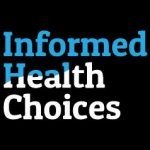
Informed Health Choices Primary School Resources
A textbook and a teachers’ guide for 10 to 12-year-olds. The textbook includes a comic, exercises and classroom activities.
| 0 Comments | Evaluated
Ebm@school – a curriculum of critical health literacy for secondary school students
A curriculum based on the concept of evidence-based medicine, which consists of six modules.
| 0 Comments | Evaluated
Know Your Chances
This book has been shown in two randomized trials to improve peoples' understanding of risk in the context of health care choices.
| 0 Comments | Evaluated
How can you know if the spoon works?
Short, small group exercise on how to design a fair comparison using the "claim" that a spoon helps retain the bubbles in champagne.
| 0 Comments

Teach Yourself Cochrane
Tells the story behind Cochrane and the challenges finding good quality evidence to produce reliable systematic reviews.
| 3 Comments
Building evidence into education
Ben Goldacre explains why appropriate infrastructure is need to do clinical trials of sufficient rigour and size to yield reliable results.
| 0 Comments
Bias – the biggest enemy
University of New South Wales Medical Stats Online Tutorial 5 addresses ‘Bias - the biggest enemy’.
| 0 Comments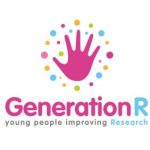
Generation R – Pictionary research activity
GenerationR’s version of Pictionary using research concepts instead of usual game cards, allocated in different levels of difficulty.
| 0 Comments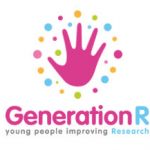
Generation R – Clinical trials card-sorting exercise
Card-sorting exercise developed by GenerationR to familiarise children and young people with jargon terms used by clinical researchers.
| 0 Comments
Basic principles of randomised trials, and validity
A 8-min talk on ‘Basic principles of Randomised Trials, and Validity’, illustrated by 15 slides, with notes.
| 0 Comments
The power of the placebo effect
Emma Bryce’s video presents information about placebo effects: treatments not supposed to have an effect but which make people feel better.
| 0 Comments
Detectives in the classroom
Five modules of materials for promoting epidemiology among high school students.
| 0 Comments
Not all scientific studies are created equally
David Schwartz dissects two types of studies that scientists use, illuminating why you should always approach claims with a critical eye.
| 1 Comment
10 Components of effective clinical epidemiology: How to get started
PDF & Podcast of 1-hr talk by Carl Heneghan (Centre for Evidence-Based Medicine, Oxford) on effective clinical epidemiology.
| 0 Comments
Caffeine Soft Drinks affect Human Heart Rate. Lesson Plan
A lesson to illustrate how medical researchers study the effects of drugs on people.
| 0 Comments
Explaining the unbiased creation of treatment comparison groups and blinded outcome assessment
A class were given coloured sweets and asked to design an experiment to find out whether red sweets helped children to think more quickly.
| 0 Comments
Systematic Reviews and Meta-analysis: Information Overload
None of us can keep up with the sheer volume of material published in medical journals each week.
| 0 Comments
Defining Bias
This blog explains what is meant by ‘bias’ in research, focusing particularly on attrition bias and detection bias.
| 0 Comments
Making sense of randomized trials
A description of how clinical trials are constructed and analysed to ensure they provide fair comparisons of treatments.
| 0 Comments
Randomized Control Trials
1/2, 40-min lecture on randomized trials by Dr R Ramakrishnan (Lecture 25) for the Central Coordinated Bioethics Programme in India.
| 0 Comments
Randomised Control Trials – CASP
This module looks at the critical appraisal of randomised trials.
| 0 Comments
Why avoiding differences between treatments allocated and treatments received is important
Knowledge of which treatments have been received by which study participants can affect adherence to assigned treatments and result in bias.
| 0 Comments
The need to avoid differences in the way treatment outcomes are assessed
Biased treatment outcome assessment can result if people know which participants have received which treatments.
| 0 Comments
Bias introduced after looking at study results
Biases can be introduced when knowledge of the results of studies influences analysis and reporting decisions.
| 0 Comments
Interactive PowerPoint Presentation about Clinical Trials
An interactive Powerpoint presentation for people thinking about participating in a clinical trial or interested in learning about them.
| 0 Comments
Cecil and those pellets again…
If possible, participants in clinical trials should not know which treatment they are receiving.
| 0 Comments
Lisa luxuriant hair
If possible, participants in clinical trials should not know which treatment they are receiving.
| 0 Comments
Introduction to clinical trials: lay-friendly video
This lay-friendly video introduction to clinical trials was created by the European Communication on Research Awareness Needs Project.
| 3 Comments
Overview of study designs
11 slides and a 4-min commentary overviewing study designs for clinical research. (from Univ Mass Med School).
| 1 Comment
Drug trials in healthy volunteers
A 6-minute video illustrating an early phase clinical trial in healthy volunteers.
| 0 Comments
How are medicinal drugs tested?
A group of text files for teaching students about how medicinal drugs are tested.
| 0 Comments
Double blind studies
A webpage discussing the importance of blinding trial participants and researchers to intervention allocation.
| 0 Comments
CEBM – Study Designs
A short article explaining the relative strengths and weaknesses of different types of study design for assessing treatment effects.
| 0 Comments
Introduction to Critical Appraisal
30-slide introduction by Jason Curtis, to Critical Appraisal.
| 0 Comments
Randomized Controlled Trial Protocols
A 1-hour videoed lecture explaining protocols for Randomized Control Trials (RCTs).
| 0 Comments
Randomised Controlled Trials vs. Observational Studies
5-minute video explaining the difference between randomised trials and observational studies.
| 0 Comments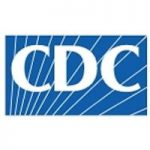
How do you know which healthcare research you can trust?
A detailed guide to study design, with learning objectives, explaining some sources of bias in health studies.
| 0 Comments
Smart Health Choices: making sense of health advice
The Smart Health Choices e-book explains how to make informed health decisions.
| 0 Comments
Methodology of clinical trials
Eurordis training on the methodology of clinical trials for representatives of patients’ organisations.
| 0 Comments
Evidence from Randomised Trials and Systematic Reviews
Dr Chris Cates' article discussing control of bias in randomised trials and explaining systematic reviews.
| 0 Comments
The Gold Standard: What are randomised control trials and why are they important?
A four minute video by the MRC Clinical Trials Unit about the importance of randomised control trials.
| 0 Comments
Lesson plan for teaching secondary school students about double-blind trials
This lesson plan provides resources to run stimulating activities about fair tests of treatments in a classroom setting.
| 0 Comments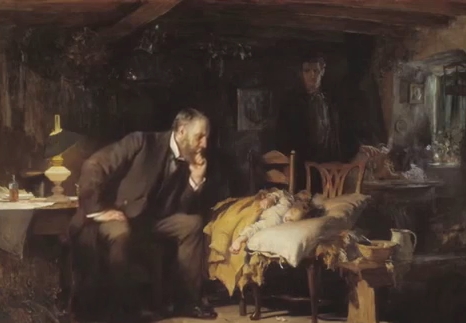
Viva la Evidence!
A brilliant song and video by James McCormack explaining the basics of evidence-based medicine.
| 0 Comments
Therapeutic Touch: a schoolgirl shows how to test it
This 5-minute video provides an example of applying scientific method to dodgy treatment claims.
| 3 Comments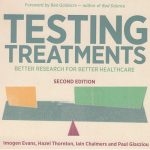
Pre-eclampsia in pregnant women
Another outstanding example of good research concerns pregnant women. Worldwide, about 600,000 women die each year of pregnancy-related complications. Most […]
| 2 Comments
Fair measurement of treatment outcomes
Although one of the reasons for using sham treatments in treatment comparisons is to help patients and doctors to stick […]
| 2 Comments
Helping people to stick to allocated treatments
Differences between intended and actual treatments during treatment comparisons can happen in other ways that may complicate the interpretation of […]
| 2 Comments
Ways of using unbiased (random) allocation in treatment comparisons
Random allocation for treatment comparisons can be used in various ways. For example, it can be used to compare different […]
| 0 Comments
Unbiased, prospective allocation to different treatments
In 1854, Thomas Graham Balfour, an army doctor in charge of a military orphanage, showed how treatment groups could be […]
| 0 CommentsNo Resources Found
Try clearing your filters or selecting different ones.
Browse by Key Concept
Back to Learning Resources homeJargon buster
About GET-IT
GET-IT provides plain language definitions of health research terms
